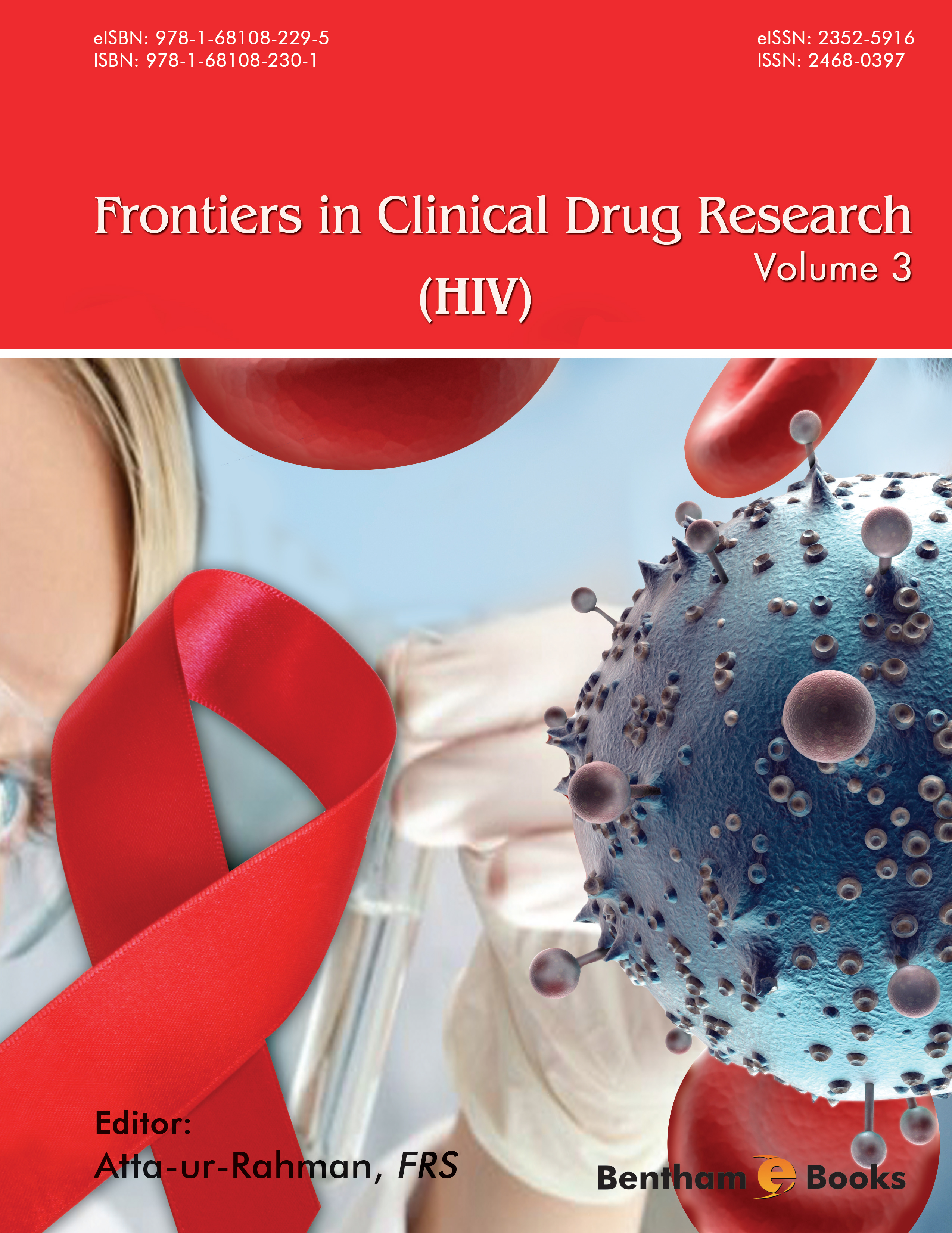Introduction
Frontiers in Clinical Drug Research – HIV
is an eBook series that brings updated reviews to readers interested in learning about advances in the development of pharmaceutical agents for the treatment of acquired immune deficiency syndrome (AIDS) and other disorders associated with human immunodeficiency virus (HIV) infection. The scope of the eBook series covers a range of topics including the medicinal chemistry and pharmacology of natural and synthetic drugs employed in the treatment of AIDS (including HAART) and resulting complications, and the virology and immunological study of HIV and related viruses.
Frontiers in Clinical Drug Research – HIV
is a valuable resource for pharmaceutical scientists, clinicians and postgraduate students seeking updated and critically important information for developing clinical trials and devising research plans in HIV/AIDS research.
The third volume of this series features 5 chapters that cover a variety of topics including:
- - Studies of HPV infections in HIV positive people
- - Allosteric Integrase Inhibitors
- - HAART
- - Drugs targeting various types HIV-1 enzymes

